‘Night of rage’ in the United States after Supreme Court strikes down Roe vs Wade
Thousands of demonstrators have flooded the streets in the United States to express their fury at abortion rights being stripped away.

Thousands of demonstrators took to the streets in the United States on Friday evening, local time, to protest against the Supreme Court’s decision to overturn the landmark ruling that has underpinned abortion rights in the country since the 1970s.
Roe v Wade prevented the government from banning abortions until the point of foetal viability, at about 24 weeks of pregnancy.
On Friday, the court voted 6-3 – along partisan lines – to scrap that precedent.
“Abortion presents a profound moral question,” Justice Samuel Alito, a conservative, wrote in his majority opinion.
“The Constitution does not confer a right to abortion.
“The Constitution does not prohibit the citizens of each State from regulating or prohibiting abortion. Roe and Casey arrogated that authority. We now overrule those decisions and return that authority to the people and their elected representatives.”
The news sparked massive protests in major US cities, including Washington D.C., New York, Los Angeles, Philadelphia and Boston.
In the nation’s capital, the militant pro-abortion group Jane’s Revenge promised a “night of rage”, and Our Rights D.C. declared it was “enraged” and “pissed the f*** off”.
At one point in the night protesters gathered outside the home of Justice Clarence Thomas. The demonstrators shouted, “My body, my choice,” beat on drums and waved signs.

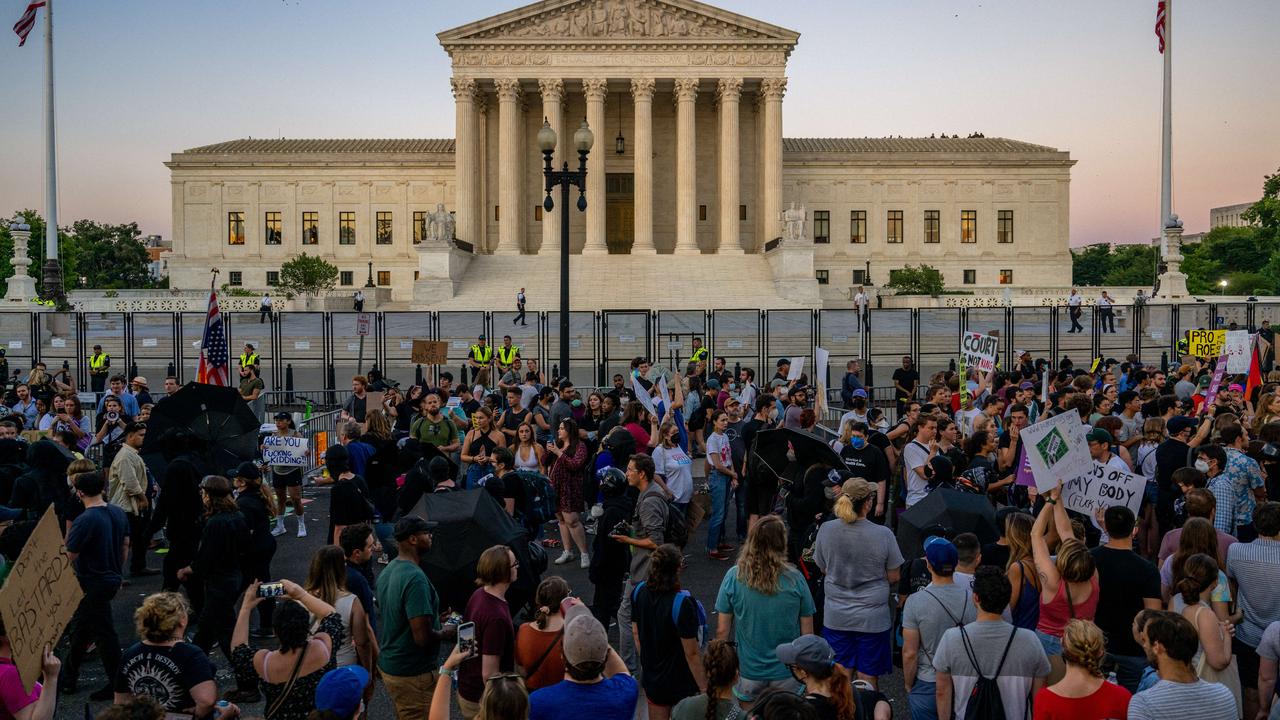

What happens now?
As a result of the ruling, abortion rights will now be determined by individual states. Almost half of the country’s states have or will pass laws that ban abortion while others have enacted strict measures regulating the procedure.
Some dormant state laws will be reactivated that will make it illegal to have an abortion even in cases of rape or incest. Anyone who performs an abortion in states that criminalise it will be charged with a felony and face up to 15 years jail time.
The Supreme Court has now officially given politicians permission to control what we do with our bodies, deciding that we can no longer be trusted to determine the course for our own lives. But make no mistake—we are a movement that will demand we are treated like equal citizens.
— Alexis McGill Johnson (@alexismcgill) June 24, 2022
Because of #SCOTUS ruling in #Dobbs, Louisiana’s trigger law banning #abortion is now in effect. #lagov
— AG Jeff Landry (@AGJeffLandry) June 24, 2022
With our Freedom of Reproductive Choice Act, the right to an abortion will remain the law of the land in New Jersey.
— New Jersey (@NJGov) June 24, 2022
The final opinion on Friday was strikingly similar to the draft written by Alito that was leaked to Politico earlier this year. It repeats his scornful language towards the original Roe decision that enshrined abortion rights.
“Roe was egregiously wrong from the start,” Justice Alito wrote.
“Its reasoning was exceptionally weak, and the decision has had damaging consequences. And far from bringing about a national settlement of the abortion issue, Roe and Casey have inflamed debate and deepened division.”

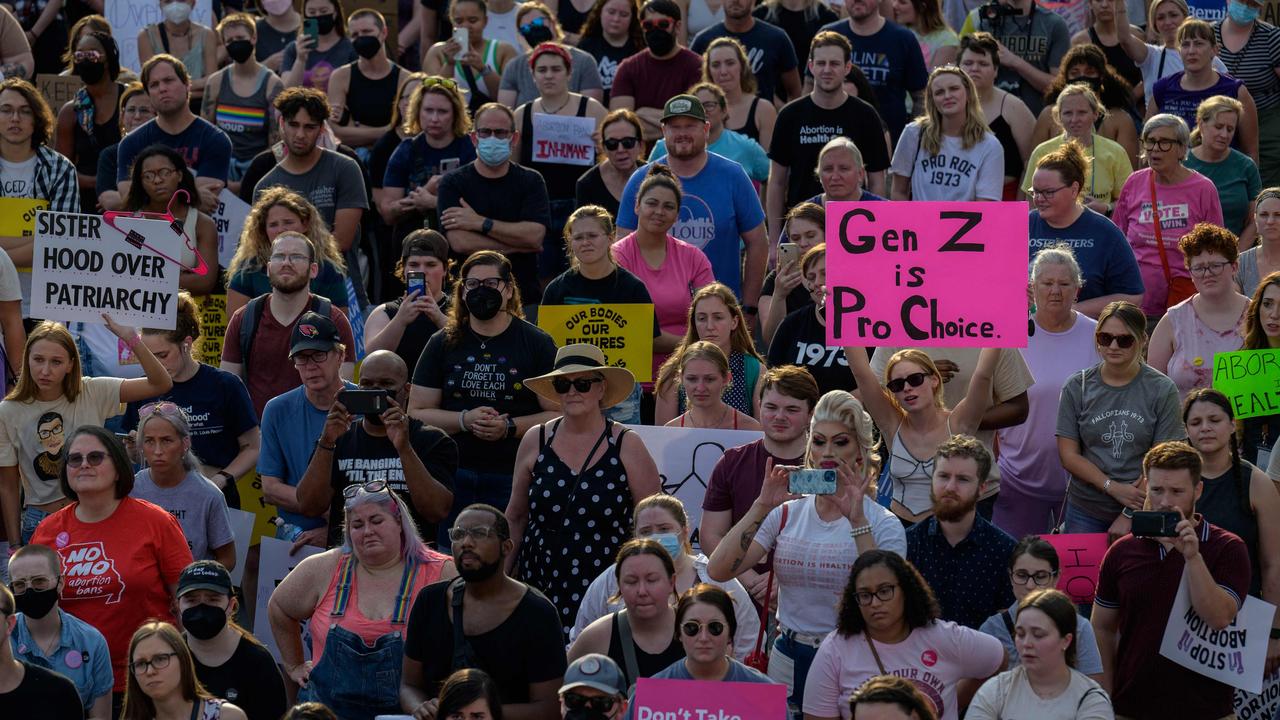
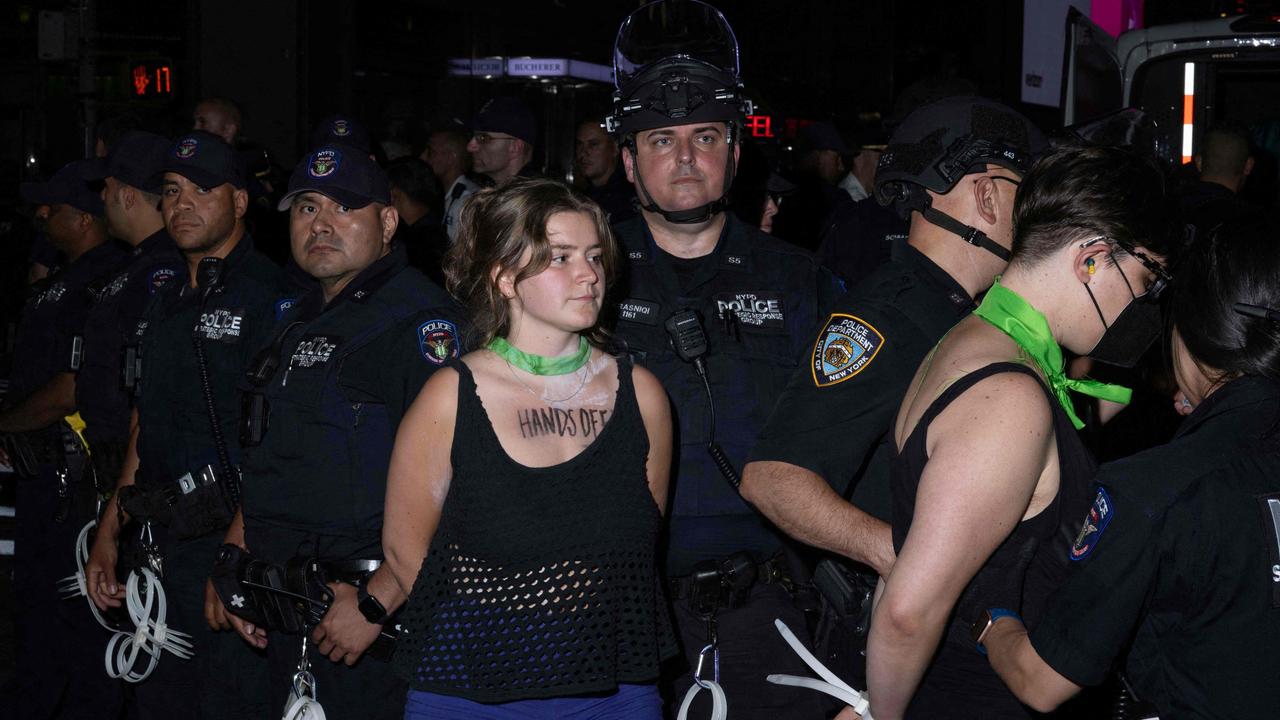
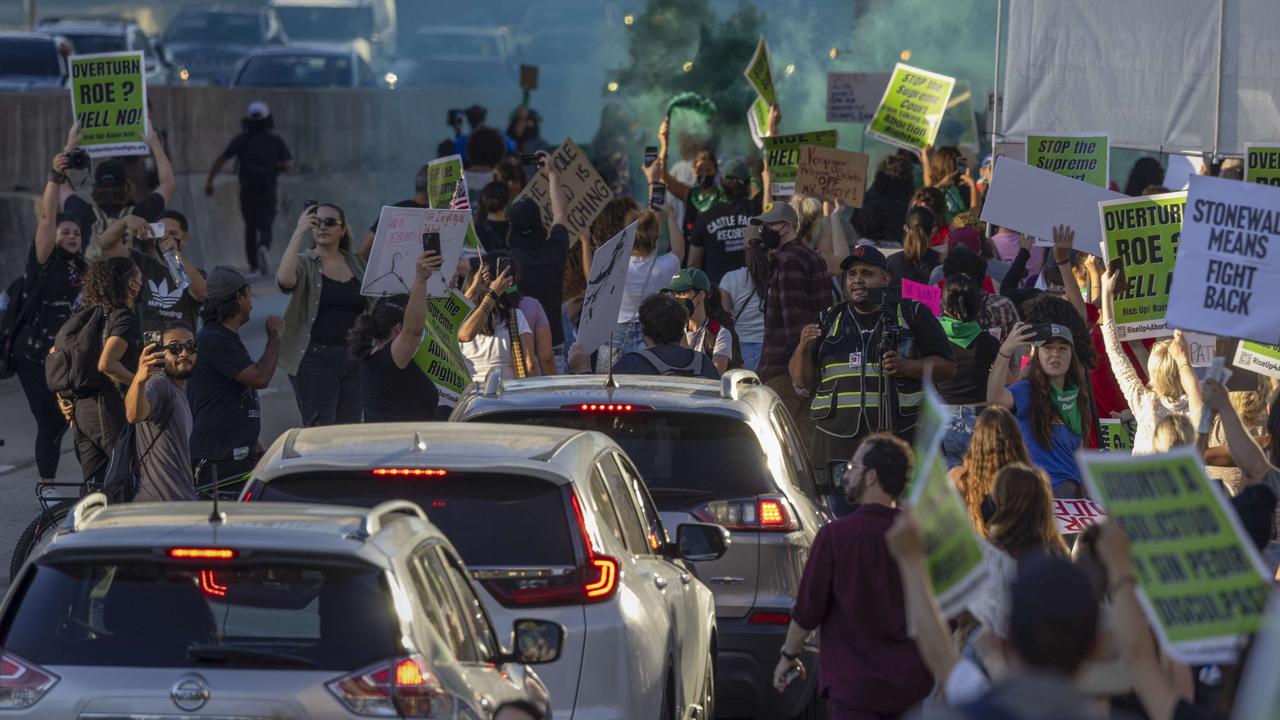
Effective immediately
The 26 states expected to bring in new restrictions on abortions include Texas, Louisiana, Idaho, Mississippi and Missouri – where Governor Mike Parson has already issued a proclamation that will implement the state’s ban on abortion.
Oklahoma Governor Kevin Stitt signed a bill that bans nearly all abortions starting at fertilisation. The new law, which takes effect immediately, is the most restrictive abortion ban in the country.
Ten others have pre-1973 laws that could go into force or legislation that would ban abortion after six weeks, before many women even know they are pregnant.
Overturning Roe and outlawing abortions will never make them go away.
— Alexandria Ocasio-Cortez (@AOC) June 24, 2022
It only makes them more dangerous, especially for the poor + marginalized.
People will die because of this decision. And we will never stop until abortion rights are restored in the United States of America.
Women in states with strict anti-abortion laws will either have to continue with their pregnancy, undergo a clandestine abortion or obtain abortion pills, or travel to another state where the procedure remains legal.
Following the ruling, the only abortion clinic in West Virginia announced it is no longer performing abortions as of Friday.
In a statement on Facebook, the Women’s Health Center of West Virginia said it is not performing the procedure anymore due to “criminal code from 1882 that criminalises abortion for both the provider and patient with a felony prison sentence up [to] 10 years.”
According to the Guttmacher Institute, 13 states have adopted so-called “trigger laws” that will ban abortion virtually immediately.
In South Dakota, we value life. Being pro-life also means getting moms the help they need to be successful. We’re launching https://t.co/QwGdeKqWBi to give women the resources they need to navigate pregnancy pregnancy, birth, parenting, and adoption, if they choose.
— Governor Kristi Noem (@govkristinoem) June 24, 2022
Although a trigger law in Texas does not go into effect for weeks, Planned Parenthood clinics across the state halted abortion services on Friday as officials reviewed the decision and the possibility, raised by the Texas attorney general, that decades-old anti-abortion laws that were never repealed could now be enforced in the state. “The pause in our abortion care,” said Jeffrey Hons, the president of Planned Parenthood South Texas, “is the right thing to do so that we have time to ensure that Planned Parenthood organisations remain compliant with the law.”
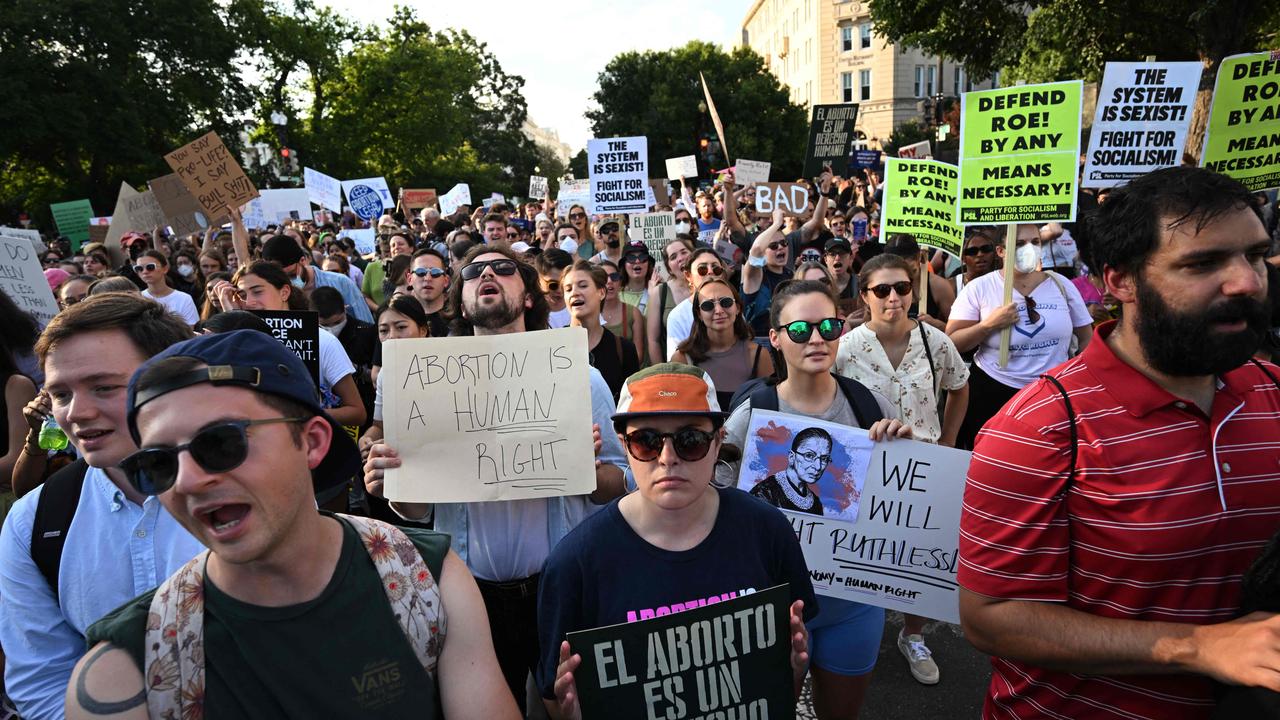
Several Democratic-ruled states, anticipating an influx, have taken steps to facilitate abortion and three of them – California, Oregon and Washington – issued a joint pledge to defend access in the wake of the Supreme Court’s decision. Travel is expensive, however, and abortion rights groups say any new restrictions will severely impact poor women, many of whom are Black or Hispanic.
US President Joe Biden criticised the Supreme Court decision overturning Roe v. Wade and called for Congress to codify the right to an abortion – something that’s unlikely given the split balance of power in the Senate.
Today is a very solemn moment for the United States.
— President Biden (@POTUS) June 24, 2022
The Supreme Court expressly took away a Constitutional right from the American people that it had already recognized. They simply took it away. That's never been done to a right that is so important to so many Americans.
“It’s a sad day for the court and the country. Today the Supreme Court of the United States expressly took away a constitutional right from the American people that it had already recognised,” Biden said in delivered remarks from the White House on Friday afternoon local time.
“It was three justices named by one president, Donald Trump, who were the core of today’s decision to up-end the scales of justice and eliminate a fundamental right for women in this country. Make no mistake, this decision is a culmination of a deliberate effort over decades to upset the balance of our law.
“It’s a realisation of an extreme ideology and a tragic error of the Supreme Court in my view.
“The court has done what it’s never done before, expressly take away a constitutional right that is so fundamental to so many Americans that had already been recognised. The court’s decision to do so will have real and immediate consequences.”

Alito was joined in his opinion by Justices Clarence Thomas, Neil Gorsuch, Brett Kavanaugh and Amy Coney Barrett.
Chief Justice John Roberts did not join the majority, writing in a concurring opinion that he would not have overturned Roe but instead would have only upheld Mississippi’s law banning abortions after 15 weeks.
In his concurrence, Roberts wrote that Alito’s opinion was “thoughtful and thorough, but those virtues cannot compensate for the fact that its dramatic and consequential ruling is unnecessary to decide the case before us.”
“Ample evidence thus suggests that a 15-week ban provides sufficient time, absent rare circumstances, for a woman ‘to decide for herself’ whether to terminate her pregnancy,” the chief justice went on before adding that both Alito’s opinion and the dissent by liberal Justices Stephen Breyer, Sonia Sotomayor and Elena Kagan “display a relentless freedom from doubt on the legal issue that I cannot share.”
In a joint dissenting opinion, Justices Stephen Breyer, Sonia Sotomayor and Elena Kagan heavily criticised the majority, closing: “With sorrow – for this Court, but more, for the many millions of American women who have today lost a fundamental constitutional protection -we dissent.”
Justice Clarence Thomas called for potentially overturning Supreme Court rulings that protect same-sex marriage and access to birth control in an opinion concurrent to the decision ending federal abortion rights.
The conservative judge wrote that the court should “reconsider” other cases that fall under the court’s previous “due process” precedents, which include rulings that establish LGBTQ and contraceptive rights.
“In future cases, we should reconsider all of this Court’s substantive due process precedents, including Griswold, Lawrence, and Obergefell,” he wrote.
The 74-year-old justice was referring to a 1965 ruling, Griswold v. Connecticut, that allows married couples to access birth control. He’s also referencing a 2003 ruling, Lawrence v. Texas, that forbids states from outlawing consensual gay sex, and Obergefell v. Hodges, a 2015 decision that established the right to same-sex marriage.




